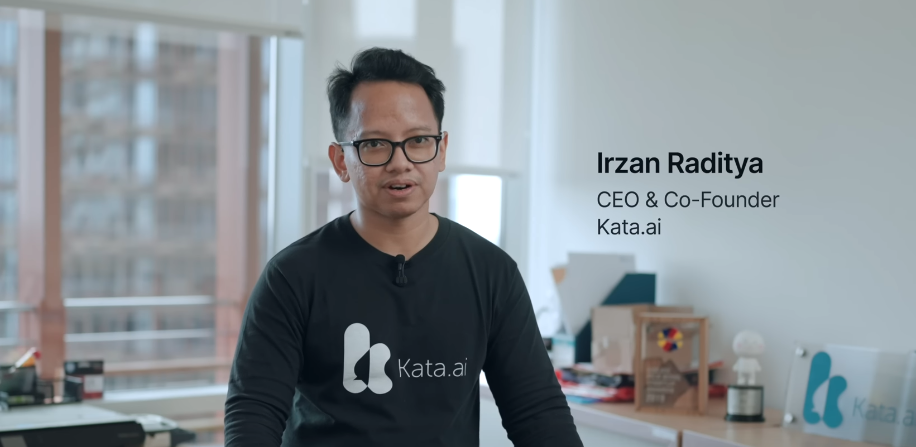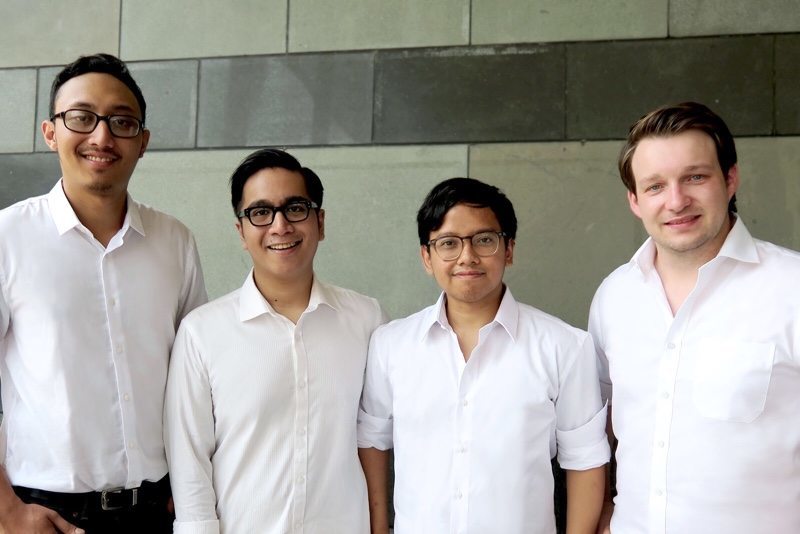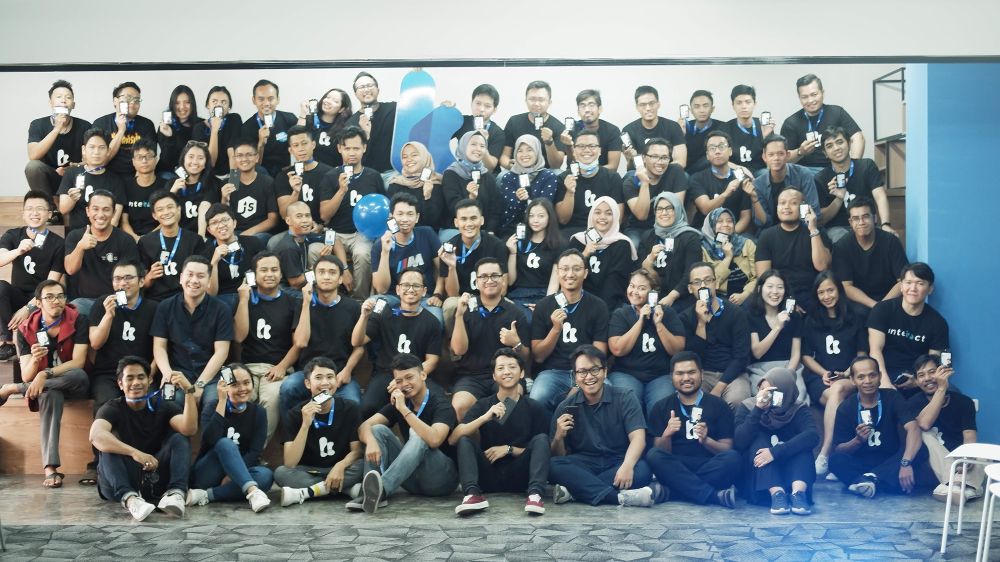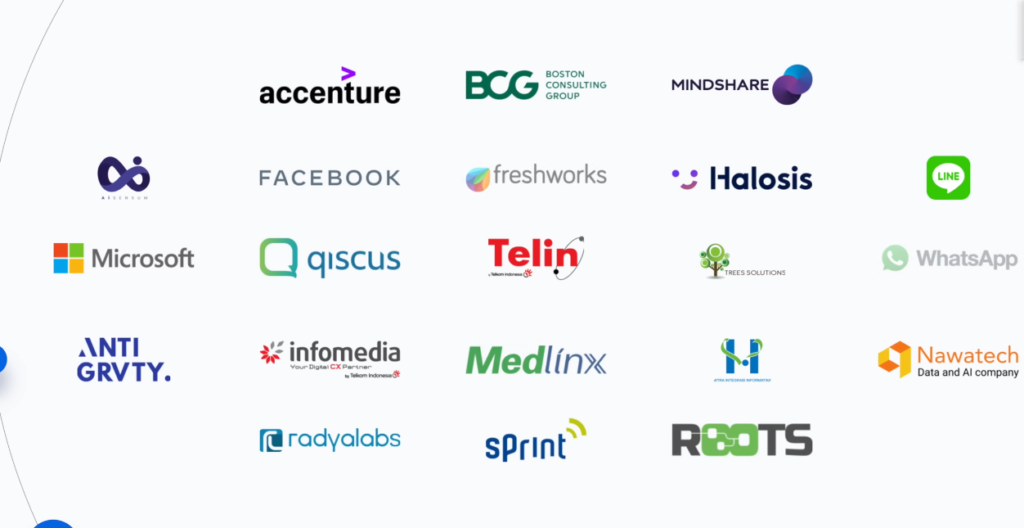“An entrepreneur shouldn’t fall in love with the technology or the solution. You should fall in love with the problem.” This powerful statement by Irzan Raditya, the co-founder and CEO of Kata.ai, encapsulates his entire approach to entrepreneurship. For Irzan, the core focus of any business should be solving the pain points of its customers. His journey, from a young boy selling caricatures for pocket money to building Indonesia’s pioneering conversational AI platform, is a testament to this belief. In this blog, we will dive deep into the incredible entrepreneurial journey of Irzan, who transformed a side project into a billion-dollar business by focusing on customers, AI technology, and innovation.

An Early Start: The Entrepreneurial Mindset of a Young Irzan
Irzan’s entrepreneurial journey started early in life. At just 8 years old, he was making money by drawing caricatures for his classmates and selling them for a small fee. His knack for turning hobbies into side hustles didn’t stop there. During his high school years, he developed bots for online games, which helped players automate their in-game actions, earning him a steady stream of income.

Additionally, he dabbled in providing pirated music CDs for friends, leveraging the expensive costs of original CDs at the time. While these were small ventures, they taught Irzan valuable lessons about making a living from creativity and technology—a theme that would follow him throughout his life.
Studying Computer Science in Germany: The Next Step in the Journey
In pursuit of formal education, Irzan moved to Germany to study Computer Science. While he was serious about his studies, he didn’t give up his passion for music. He became part of a local band, the only Indonesian in a group of Germans, and toured across Europe. His time as a musician taught him more than just stage presence—it gave him hands-on experience in digital marketing.

Irzan was responsible for building the band’s MySpace page and handling sponsorship negotiations. This experience taught him about creating value propositions, which would later prove invaluable when pitching his business ideas to investors.
The First Foray into Business: Amplitweet
While still in Germany, Irzan’s entrepreneurial drive led him to create Amplitweet, a platform designed to help musicians and artists grow their fanbase on Twitter, which was booming at the time. The platform required fans to tweet about the artist in exchange for downloading music, effectively using viral marketing to boost followers. Despite signing up eight musicians, including one from a major label, Amplitweet didn’t take off due to lack of time and resources.

This experience was a pivotal lesson for Irzan: “You can start as Superman, but to grow a business, you need to become the Justice League.” He realized the importance of building a strong team to turn an idea into a thriving company.
Pivoting from YesBoss to Kata.ai: A Strategic Shift
Before Kata.ai became what it is today, Irzan had started YesBoss in 2015, a virtual assistant company that allowed customers to get help through simple messages. Whether it was booking movie tickets or arranging personal errands, YesBoss acted like a personal assistant for its users. However, despite its initial success, Irzan realized that this business model wasn’t scalable.

He and his team made the difficult decision to pivot from YesBoss to Kata.ai, moving from a B2C model to a B2B model focused on AI-powered chatbots. The transition wasn’t easy, and it involved laying off 90 staff members, a decision that was personally tough for Irzan. However, he remained committed to his long-term vision, which he believed would create a more sustainable and impactful business.
Today, Kata.ai has processed over 2 billion conversations and helped more than 200 enterprise customers across industries such as telecommunications and financial services.

The Birth of Kata.ai: Solving Local Problems with AI
Irzan Raditya co-founded Kata.ai with the vision of leveraging Artificial Intelligence (AI) to address local, hyper-specific problems. His deep-rooted understanding of local languages and cultures, combined with cutting-edge AI, gave Kata.ai a competitive edge. The startup focused on enhancing customer engagement by creating AI-powered chatbots that understand not only formal language but also the various nuances of Indonesian slang, which can often be complex and varied.

Imagine trying to train an AI system to understand 13 different ways of saying “I” in a language, depending on the context! That’s exactly what Kata.ai managed to do. They collected over 3 million messages to train their AI, ensuring it could grasp these subtleties, which in turn made their platform unique in the Indonesian market.
Challenges of Transition: From Startup to AI Powerhouse
The transition from a small, scrappy startup to an AI leader was anything but smooth. During the pivot to Kata.ai, Irzan had to focus on product development while also ensuring the company’s survival. He admits that it was the toughest three months of his life, balancing cash flow issues, tight resources, and maintaining morale after letting go of a large portion of the staff.

But the hard work paid off. Once Kata.ai’s AI-powered chatbot technology gained traction, it caught the attention of major brands like Line and Unilever. One of the first successful projects was the creation of a virtual best friend chatbot for Unilever, which managed to engage 2 million users within a year.
Building Strong Partnerships and a Developer Platform
As Kata.ai grew, Irzan realized the importance of forming strategic partnerships. One key partnership was with a major technology consulting firm that helped Kata.ai serve a large telecommunications client. This collaboration led to the development of a developer tool that allowed external engineers to build chatbots using Kata.ai’s NLP (Natural Language Processing) technology.

This move opened the door for Kata.ai to scale without needing to customize every solution in-house. It allowed them to form a go-to-market strategy with other consulting firms, expanding their reach to more clients while focusing on technology innovation.
The Future of AI and Conversational Commerce
Looking ahead, Irzan sees a bright future for AI, particularly in the realm of conversational commerce. With the rise of generative AI technologies like ChatGPT, the goal is to make human-like conversations possible on messaging platforms. Imagine being able to buy products, pay for services, and interact with businesses seamlessly through messaging apps like WhatsApp and Instagram.

Kata.ai is positioning itself to lead this charge, transforming customer experiences through AI, making it easier and more efficient for users to engage with businesses.
Lessons for Entrepreneurs: Focus on Impact and Teamwork
Irzan’s journey is filled with valuable lessons for aspiring entrepreneurs. First and foremost, he emphasizes the importance of falling in love with the problem, not the technology. By understanding customer pain points and focusing on solutions, success is more likely to follow.
He also stresses the significance of building the right team, one that shares the same mission and growth mindset. According to Irzan, three key traits define a successful team:
- A clear “why” – The mission and purpose must be shared.
- A growth mindset – The willingness to learn and adapt is crucial.
- Humility and coachability – Being open to feedback and learning from failures is essential.


Leave a Reply